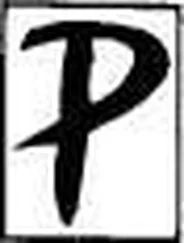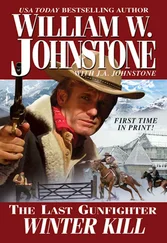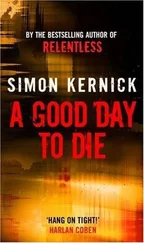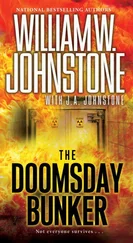William Johnstone - A Good Day to Die
Здесь есть возможность читать онлайн «William Johnstone - A Good Day to Die» весь текст электронной книги совершенно бесплатно (целиком полную версию без сокращений). В некоторых случаях можно слушать аудио, скачать через торрент в формате fb2 и присутствует краткое содержание. Год выпуска: 2012, Издательство: Kensington Publishing Corp., Жанр: Старинная литература, на английском языке. Описание произведения, (предисловие) а так же отзывы посетителей доступны на портале библиотеки ЛибКат.
- Название:A Good Day to Die
- Автор:
- Издательство:Kensington Publishing Corp.
- Жанр:
- Год:2012
- ISBN:нет данных
- Рейтинг книги:4 / 5. Голосов: 1
-
Избранное:Добавить в избранное
- Отзывы:
-
Ваша оценка:
- 80
- 1
- 2
- 3
- 4
- 5
A Good Day to Die: краткое содержание, описание и аннотация
Предлагаем к чтению аннотацию, описание, краткое содержание или предисловие (зависит от того, что написал сам автор книги «A Good Day to Die»). Если вы не нашли необходимую информацию о книге — напишите в комментариях, мы постараемся отыскать её.
A Good Day to Die — читать онлайн бесплатно полную книгу (весь текст) целиком
Ниже представлен текст книги, разбитый по страницам. Система сохранения места последней прочитанной страницы, позволяет с удобством читать онлайн бесплатно книгу «A Good Day to Die», без необходимости каждый раз заново искать на чём Вы остановились. Поставьте закладку, и сможете в любой момент перейти на страницу, на которой закончили чтение.
Интервал:
Закладка:
Upstairs, Monk stuck his head upside down through the trapdoor hatch, shouting, “They’s coming! They’s coming! The Staffords are riding into town!”
TWELVE
The Staffords and their Ramrod Ranch riders had come to Hangtown. They rode in from the south, going north on River Road between the town and Swift Creek. They rode in a column, twenty-one men in all.
The point man rode alone. Vince Stafford. Patriarch and boss, he was proud, profane, upright, and unbowed. White-haired, gray-bearded, and thick-bodied, he was mean faced and scowling, and not necessarily because of his son Bliss’s death. It was how he looked most of the time. He wore a gun belt on his right hip and had a repeating rifle tucked into a saddle scabbard.
Behind him, riding side by side yet as far apart as possible, were the two surviving Stafford sons, adults both, Clay and Quentin.
Quentin—Quent—the firstborn, was hulking and brutish. As firstborn he should have been in line to be Vince’s inheritor. But Nature and the patriarch had long since determined the line of succession should skip the eldest and fall on second-born Clay. That, and Clay’s own cunning, ruthlessness, and quick gun.
Quent resented the situation, but not enough to do something about it. The last time he dared to try, Clay pistol-whipped him into a whimpering heap. Known as “the Ramrod’s ramrod,” Clay was the one Vince called on to see that the dirty work got done and done right.
Bliss had been the youngest, the “baby of the family.” He was Vince Stafford’s first dead son, a dubious distinction his father meant to capitalize on during the foray into Hangtown.
Behind the Staffords, the Ramrod riders came on in threes, their precedence in the column determined by the pecking order of their gun skills.
In the first nonfamily rank were Dan Oxblood, Ted Claiborne, and Kev Huddy.
Oxblood was the only outsider, a gun for hire who’d been brought on for this venture. Thick, glossy brick-red hair was combed straight back from his forehead. He had green eyes, wore a black hat and garments, and a left-handed gun. He rode a handsome white stallion.
Claiborne and Huddy were Ramrod regulars, though they were kept on the payroll for their skill as gun hands, not ranch hands. Claiborne, thirty, was heavyset, deliberate, slow-talking and easy-walking—quick with a gun. Huddy, in his early twenties, was skinny with a sharp nose, thick lips, and long, lank dirty-blond hair.
In the next rank came Kaw, Dimaree, and Marblay. Good guns all, dependable and nervy. They lay somewhere on the cusp between working cowboys and gunmen. They could break a horse, ride herd, rope and brand a dogie with the best of them, their gun handling skills better than most.
The same could be said of Duncan, Lord, and Carney, next in line. Top hands and good men in a fight.
The rest of the bunch were ranch hands first, but any cowboy worth his feed must count a six-gun as one of his working tools and be able to use it quickly and accurately. They were all of that, and had less compunction than most when called on by the boss to kill a man.
Most of the Ramrod outfit had come along. Only a handful remained at the ranch to keep an eye on herd and property.
The group rode steadily at a measured pace. There was something formal and ominous, sinister even, about their deliberate gait. It had a funereal pace. They passed the grounds where the wagon train had been encamped, then Mextown.
Vince Stafford slowed still more, reining in at Hangtree Trail running east-west at right angles to River Road. Once in town, the trail became Trail Street, keeping that name until exiting on the west side between the church and Boot Hill, then resuming once more as Hangtree Trail.
Aware, attentive to his father’s actions, Clay Stafford raised an arm, signaling the others behind him to halt. The riders slowed to a stop, bunching up.
Vince said, “Dress ’em up, Clay. The Staffords are coming to town. Let’s show ’em something!”
Clay rose in the saddle, turning toward the rear. Cupping hand to mouth, he shouted, “Look sharp, men! Dress up those lines! Keep a length between each rank. Move!”
A lot of shuffling, backing and moving around agitated the column in response to Clay’s command.
“Me too, Clay?” Dan Oxblood drawled, his tone light, but on the right side of insolence—barely.
“For a specialist like you, the rules don’t apply. But I’d think the great Dan Oxblood would just naturally want to show some pride of place,” Clay said, showing his habitual sneer.
“Show that in everything I do,” Oxblood said genially.
“For what you’re being paid, you should.”
Kev Huddy snickered. Ted Claiborne looked faintly disapproving. Oxblood brought his horse in line with the other two in his rank.
Vince Stafford said, “Tell the boys, Clay.”
“You know what the boss said! Nobody makes a play until he gives the word!” Clay shouted.
“I’ll shoot the first man who slaps leather without my say-so,” Vince rumbled, loud enough to be heard at the end of the column.
Turning his horse’s head to the left, Vince made a left-hand turn onto Hangtree Trail, going west. He was about twenty yards outside the town proper. Rank by rank, the column followed. The patriarch set the pace at a slow walk,
Shouts from somewhere in town testified that the Staffords’ arrival had not gone unnoticed. People began clearing off the street fast.
Ahead lay the jail and courthouse. The building housed a trial room on the first floor; on the second floor were the various offices of mayor, notary, and town council. The administrative center of the county seat, it archived county records, trial documents, land titles, certificates of birth, death, marriage and the like. Open Saturdays for a half-day’s business, it was now closed. Across from its front lay a small plaza, a square of grass and some shade trees with a couple benches beneath.
A slanted wooden awning protruded from the north face of the top of the jail. Leaning against the middle support post was Deputy Smalls. Seeing riders at the edge of town, he turned and went into the jail.
Shoulder-high plank board partitions walled off the building into two halves, a gap in the middle of the wall allowing access to both sections. The front half held the sheriff’s office; the rear held four narrow cells, two each on either side of the center aisle. Three cells were empty. The fourth was occupied by a drunk who lay on his side on a wooden pallet facing the wall, snoring and occasionally crying out in a fitful sleep.
Up front, on the east side of the space, stood a dark, wooden desk with a swivel chair behind it, the sheriff’s desk. It faced the front door. In the two corners on that side were cabinets with drawers for holding records. Most of the drawers were empty; Mack Barton wasn’t big on doing paperwork, and his deputy was barely literate. Sometimes Smalls kept a bag lunch in one of the drawers.
Between the cabinets was a wall-mounted, glass-fronted gun locker lined with rifles and shotguns. Much of the rest of the wall was papered with an assortment of Wanted posters, some current, others years out of date. Standing well out in front of the desk was a brass cuspidor. The sheriff didn’t chaw, he smoked, but plenty of upright, taxpaying citizens did chaw and it was there to accommodate them. A square-topped wooden table with two chairs edged the front wall.
Behind the desk sat the sheriff, smoking a cigar and reading a six-month-old copy of the Police Gazette .
He looked up as Smalls rushed in, leaving the door open.
“They’re here,” Smalls said, excited but trying not to show it. Barton didn’t like it when his deputy got excited. He thought it was unprofessional.
Читать дальшеИнтервал:
Закладка:
Похожие книги на «A Good Day to Die»
Представляем Вашему вниманию похожие книги на «A Good Day to Die» списком для выбора. Мы отобрали схожую по названию и смыслу литературу в надежде предоставить читателям больше вариантов отыскать новые, интересные, ещё непрочитанные произведения.
Обсуждение, отзывы о книге «A Good Day to Die» и просто собственные мнения читателей. Оставьте ваши комментарии, напишите, что Вы думаете о произведении, его смысле или главных героях. Укажите что конкретно понравилось, а что нет, и почему Вы так считаете.








